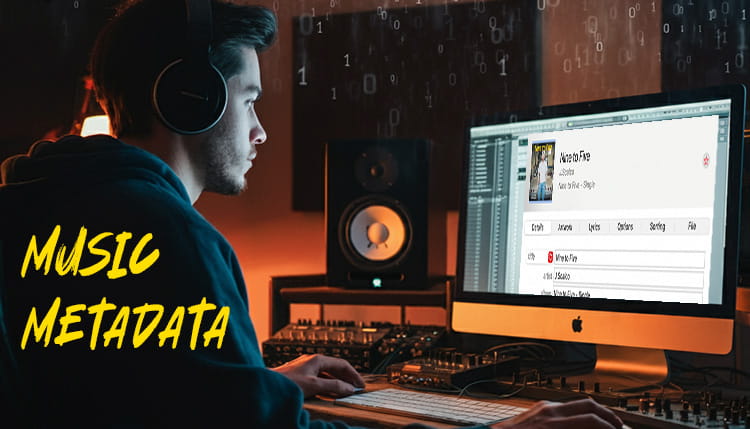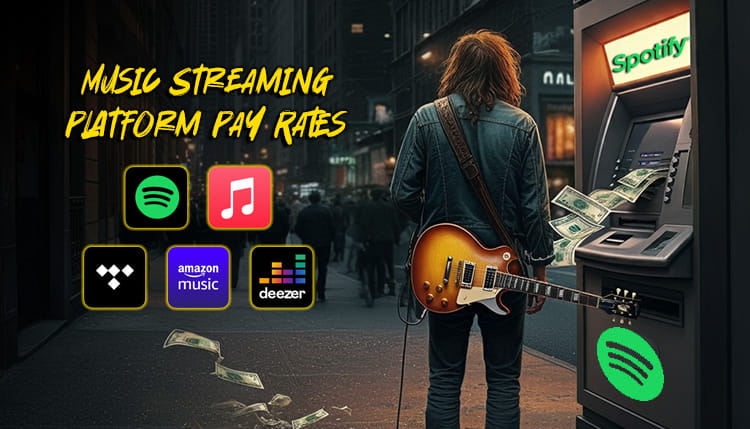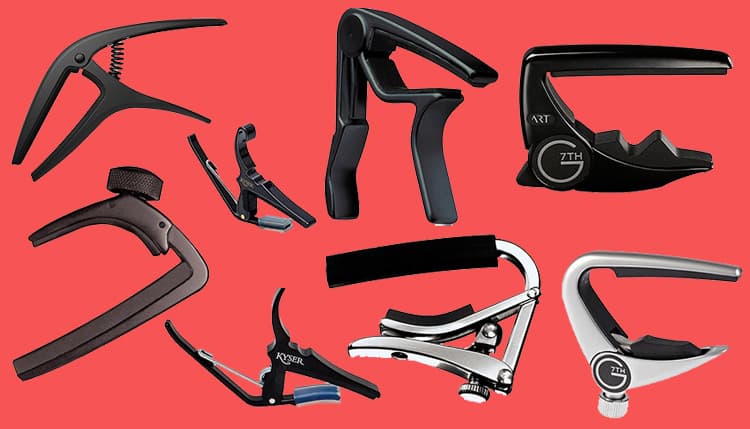Lights, camera, and…. music video legal issues. WHAT!?
The world of making music videos is a thrilling blend of creativity and commerce, but it’s also a minefield of potential legal issues.
Did you know that in 2023, over 60% of music video disputes were related to copyright infringement? Yikes!
As we dive into 2024, it’s more crucial than ever for artists, directors, and producers to understand the legal landscape.
Let’s explore the key legal challenges you might face when bringing your musical vision to life on screen!
Copyright Considerations: Protecting Your Creative Vision
Let me tell you, navigating copyright in the music video world can be a real headache!
I remember when I first started out, I naively thought I could just use any song I wanted in my videos. Boy, was I wrong! I quickly learned there’s a big difference between music copyright and video copyright.
Here’s the deal – you can’t just grab a popular tune and slap it on your visuals without permission.
I made that mistake once and got slapped with a takedown notice faster than you can say “copyright infringement.”
It was a wake-up call, for sure.
Licenses
Now, if you’re doing a cover song, you’ve gotta obtain the proper licenses. Trust me, it’s worth the hassle to do it right.
I’ve seen too many talented creators get their work pulled down because they didn’t clear the rights.
And don’t even get me started on samples – that’s a whole other can of worms!
But it’s not just about the music. You’ve gotta think about everything that appears in your video.
That cool street art in the background? Yeah, you might need permission to show that.
The vintage poster on your set? Same deal. It’s enough to make your head spin!
Fair use and parody laws can be a lifesaver, but they’re tricky to navigate.
I once thought I was being clever with a parody, only to find out I was walking a very fine legal line.
Lesson learned – when in doubt, get legal advice!
Here are some quick tips I’ve picked up along the way:
- Always research the copyright status of any music you want to use
- Get written permission for any copyrighted material in your video
- Consider using royalty-free music libraries to avoid headaches
- Keep detailed records of all your licenses and permissions
Remember, it’s better to be safe than sorry when it comes to copyright.
Trust me, the last thing you want is to pour your heart and soul into a video, only to have it taken down because of a copyright issue.
Been there, done that, and it sucks!
Talent Agreements: Ensuring Everyone’s on the Same Page
Alright, let’s talk about talent agreements.
This is something I wish I’d known more about when I first started making music videos.
It’s not just about getting people to show up and look pretty on camera – there’s a whole legal side to it that can be a real pain in the butt if you don’t handle it right.
I remember this one time, I had this awesome idea for a video with a bunch of dancers.
I called up some friends, promised them pizza and exposure (rookie mistake, I know), and we shot this amazing video.
But then, when the video started getting popular, one of the dancers came back asking for money.
I hadn’t even thought about image rights or usage! Talk about a mess.
Contracts
So, here’s the deal – you need contracts.
I know, I know, it sounds all fancy and complicated, but trust me, it’s worth it.
You wanna make sure everyone knows exactly what they’re signing up for.
Are they cool with their face being plastered all over YouTube? Do they want to be credited? Are they expecting to be paid if the video blows up?
And don’t even get me started on negotiating fees and royalties.
It’s like trying to solve a Rubik’s cube blindfolded sometimes.
You’ve got to think about upfront payments, backend deals, residuals – it’s enough to make your head spin!
But it’s important to get it right, ’cause you don’t wanna be caught off guard if your video suddenly goes viral.
Union Performers
Oh, and if you’re working with union performers? Hoo boy, that’s a whole other level of complexity.
I once tried to wing it with a union actor without really understanding the rules.
Let’s just say it didn’t end well, and I spent more time dealing with union reps than actually filming.
Here are some key things I’ve learned to include in talent agreements:
- Clear description of the project and the talent’s role
- Details on compensation (including any potential future payments)
- Specifics on how and where the video will be used
- Information on crediting and attribution
- Any restrictions or special requirements
The most important thing is to be upfront and clear with everyone involved.
It might feel awkward at first, especially if you’re working with friends, but trust me, it’ll save you a world of hurt down the line.
Pro Tip: get everything in writing. Even if it’s just a quick email outlining what you’ve agreed on. You never know when you might need to refer back to it.
I’ve had to dig through old emails more times than I can count to sort out misunderstandings.
At the end of the day, talent agreements are all about making sure everyone’s on the same page.
It might seem like a hassle, but it’s way better than dealing with drama after the fact.
Trust me, I’ve been there, and it ain’t fun!
Location and Filming Permits: Staying on the Right Side of the Law
Okay, let’s chat about location and filming permits.
This is one of those things that can really make or break your music video shoot.
I’ve had my fair share of run-ins with angry security guards and nosy neighbors, and let me tell you, it’s not fun!
I remember this one time, we had this brilliant idea to shoot a video in the middle of a busy city street.
We thought we’d just show up, set up our gear, and start filming. Boy, were we wrong!
Within minutes, we had cops showing up, telling us we couldn’t film there without a permit. Talk about a reality check!
So, here’s the deal – if you’re planning to shoot in public spaces, you gotta do your homework.
Each city has its own rules and regulations about filming, and trust me, it’s better to know them beforehand than to find out the hard way.
I’ve learned to always check with the local film office or city hall before setting up shop anywhere.
Private Locations
I once thought I could just sweet-talk my way into filming at this cool abandoned warehouse.
Turns out, trespassing is a real thing, and property owners don’t take kindly to random people showing up with cameras.
Lesson learned – always get proper permission, even if a place looks deserted.
Drones
Drones can be a great option for a music video camera and they are awesome for getting those epic aerial shots, right?
Well, they’re also a legal minefield.
I nearly got myself into hot water trying to fly a drone in a no-fly zone. Didn’t even know those existed for drones!
Now I always check the local drone laws before even thinking about getting that birds-eye view.
Noise Complaints
And here’s something you might not think about – noise complaints. Yeah, that’s a thing.
I once had a whole day of shooting ruined because we were playing music too loud and the neighbors called the cops.
Now I always try to give a heads up to the locals if we’re gonna be making some noise.
Here are some tips I’ve picked up along the way:
- Always research local filming regulations before choosing a location
- Get written permission for any private property you want to use
- Check drone laws if you’re planning any aerial shots
- Be considerate of the community – inform neighbors if you’re planning a noisy shoot
The key is to be prepared and respectful.
Yeah, it might take a bit more time and effort upfront, but trust me, it’s way better than having your shoot shut down halfway through. I’ve been there, and it’s not pretty.
Pro Tip: Make friends with local film commissions.
They can be a goldmine of information about cool locations and local regulations. Plus, they might even help you cut through some red tape.
At the end of the day, dealing with permits and regulations might not be the most glamorous part of making a music video, but it’s crucial if you want your shoot to go smoothly.
Take it from someone who’s learned the hard way – a little prep work can save you a whole lot of headache down the line!
Content Restrictions and Ratings: Keeping It Clean (Or Not)
Alright, let’s dive into the murky waters of content restrictions and ratings.
This is one of those areas where you really gotta know your audience and your platforms.
I’ve had my fair share of videos flagged or taken down, and let me tell you, it’s not a great feeling.
I remember this one time, I made what I thought was a pretty tame video. Nothing too crazy, just a bit of suggestive dancing.
Well, turns to out, what’s “tame” to me isn’t necessarily “tame” to everyone else.
The video got slapped with an age restriction on YouTube faster than you can say “explicit content.”
Talk about a learning experience!
Here’s the thing – if you’re aiming for broadcast TV, you’ve gotta play by their rules. And let me tell you, those rules can be strict!
I once had to spend hours editing out tiny bits of content just to get a video approved for TV.
It was a real pain in the butt, but sometimes you gotta do what you gotta do.
Online Platforms
Now, online platforms like YouTube and Vimeo are a bit more lenient, but they still have their own set of rules. And those rules can change pretty quickly, too.
Once I spent all this time optimizing a music video for YouTube that was fine one day and then suddenly it gets flagged because of a policy change. It’s enough to make your head spin!
Sponsorships
Product placement and sponsorships are a whole other can of worms.
I once did a video with a bunch of product placement, thinking I was being clever. Turns out, I should’ve disclosed it more clearly. Oops!
Cultural Sensitivities
One thing I’ve learned the hard way is to be mindful of cultural sensitivities.
What might seem harmless to you could be super offensive to someone else.
I once used a symbol in a video that I thought looked cool, only to find out later it had some pretty heavy cultural significance. Talk about putting my foot in my mouth!
Here are some tips I’ve picked up over the years:
- Always check the content guidelines for the platforms you’re using
- If in doubt, err on the side of caution with explicit content
- Be upfront about any product placement or sponsorships
- Do your research to avoid unintentional cultural insensitivity
The key is to know your audience and your distribution channels.
If you’re going for shock value, that’s cool, but make sure you’re prepared for the potential backlash.
And if you’re trying to keep things family-friendly, you might have to reign in your creative vision a bit.
Pro Tip: Consider making multiple versions of your video. I often do a “clean” version and an “explicit” version. That way, I can distribute to different platforms without running into content issues.
At the end of the day, navigating content restrictions is all about finding the right balance between your artistic vision and the realities of distribution.
It can be frustrating sometimes, but hey, that’s showbiz, baby!
Music Video Distribution: Legal Considerations for Getting Your Work Out There
Alright, it’s time for some music video promotion so you can introduce your music video to the world.
This is where all your hard work finally pays off, but let me tell you, it’s not as simple as just uploading your video and calling it a day.
There’s a whole bunch of legal stuff you gotta consider.
Distribution Agreements
First off, let’s chat about distribution agreements.
I remember when I first started out, I just threw my videos up on YouTube without a second thought. Big mistake!
Turns out, if you want to monetize your content effectively, you need to think about things like revenue sharing and how different platforms handle that.
I’ve had my fair share of headaches dealing with YouTube’s Content ID system.
One time, I uploaded a video with a tiny clip of a copyrighted song playing in the background of a scene.
Next thing I know, all the ad revenue is going to the copyright holder! It was a real wake-up call about how careful you need to be.
Piracy
Piracy will make you want to pull your hair out! I once spent weeks trying to get unauthorized copies of one of my videos taken down from various sites.
It felt like playing whack-a-mole – as soon as I’d get one removed, another would pop up somewhere else.
International Distribution
One thing that really caught me off guard was dealing with international distribution.
Did you know that some countries have specific laws about what kind of content can be shown? I
sure didn’t, until one of my videos got blocked in certain countries for content I didn’t even think twice about.
It was a real eye-opener about how different cultures view things differently.
Here are some key things I’ve learned to consider when distributing music videos:
- Understand the terms of service for each platform you’re using
- Be clear on how revenue sharing works for monetized content
- Have a plan for dealing with unauthorized use of your videos
- Research content laws in different countries if you’re aiming for international distribution
The most important thing is to be proactive. Don’t just assume everything will be fine once you hit that upload button.
Take the time to understand your rights and the policies of the platforms you’re using.
Pro Tip: Consider working with a distribution company. Yeah, they’ll take a cut of your earnings, but they can handle a lot of the legal headaches and might even get you better deals with platforms.
Oh, and always keep backups of your videos!
I learned this the hard way when one of my accounts got hacked and I lost access to some of my content.
Now I always make sure I have copies stored safely offline.
At the end of the day, distribution is what gets your work seen by the world.
It can be a bit of a minefield legally, but don’t let that discourage you.
With a bit of knowledge and preparation, you can navigate it successfully and get your awesome music videos out there for everyone to enjoy!
Conclusion
Phew! We’ve covered a lot of ground in our journey through the legal maze of music video production.
Remember, staying informed and proactive about these issues isn’t just about avoiding lawsuits – it’s about protecting your creative vision and ensuring your hard work pays off.
Don’t let legal worries stifle your creativity; instead, use this knowledge to empower your artistic process.
Ready to make your mark on the music video world? Go forth and create, but don’t forget to keep one eye on the legal fine print!









